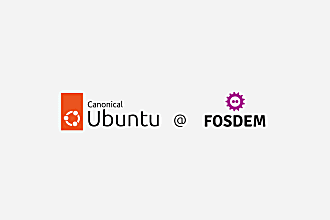Canonical
on 6 July 2010
Ubuntu Software Center has amazing improvements lined-up for Maverick Meerkat and early alpha adopters are highly excited about the progress. However, what is Ubuntu Software Center? It’s merely a container, it’s only as good as the content within. We’re already aware it’s a show-stopper for new Ubuntu users and there is a papercut milestone for fixing this issue of poor descriptions. Bugs have been filed and members are eagerly grabbing the bugs to fix these issues.
Looking at the list of bugs currently reported , you’ll notice there have been only a few handful of bugs reported. This can’t be right! Are these few shoddy descriptions the only ones causing all the havoc?
How many of us have actually read an application’s description before installing it? Most of us don’t need to, as we’re already familiar with the application and what it offers us. A new user, on the other hand, is oblivious to it’s wonders and has to read the description to know what awaits beyond. We need to make it easier for them to choose and not confuse them with jargon!
You want more people using your favorite applications?
Read the description it offers and make sure it is optimal. If it contains unnecessary jargon, file a bug in the application and add a papercut task. Or, if your favorite application is listed as a deviant, grab the bug and fix it!
Let’s improve these descriptions and make sure Ubuntu Software Center really rocks!
Myth-busting Papercuts
Clearing up a few misconceptions:
– Ubuntu hides papercut fixes from upstream. No! – Every patch has been sent upstream. The changes flow into Ubuntu only after it has been fixed upstream, Desktop team has been very keen to make sure no patch is left behind.
– Papercuts projects does not include Kubuntu. No! – The goal of papercuts for Kubuntu has always been 10 per each release, 16 Kubuntu bugs have been fixed over the year. Kubuntu can still benefit from more attention, a few of the Kubuntu papercut bugs are still in need of triage. If you use Kubuntu, you can help triage these bugs!
– There is a ninja squad employed by Canonical swooshing around fixing Papercuts. No! – Most of the fixes are from community members [See Hall Of Fame below] and the amazing upstreams themselves.
Papercuts Hall Of Fame:
Marcus Carlson, Saïvann Carignan, Scott Howard, Travis Watkins, Chow Loong Jin, Jean-Baptiste Lallement, Scott Ritchie, Mackenzie Morgan, Andrew Higginson, Ted M Lin, Torrey Rice, Conn O Griofa, Luke Symes, Andrew Starr-Bochicchio, Iain Churcher, Alexey Fisher, Yves Kurz, Matt Perry, Alex Launi, Andrew, Dries Harni, Jonathan Thomas, Iain Lane, Xiegai Shan, Mirco Müller, Alexander Sack, Neil J. Patel, Chris Cheney, Chris Halse Rogers, Cody Russell, Didier Roche, Bryce Harrington, Martin Pitt, Robert Ancell, Jonathan Riddell, Michael Vogt, Sebastien Bacher, Ken VanDine, Marcel Stimberg, Jean-Louis Dupond, Dries Harnie, Luca Ferretti.
For more information about Papercuts and getting involved, read the wiki.



